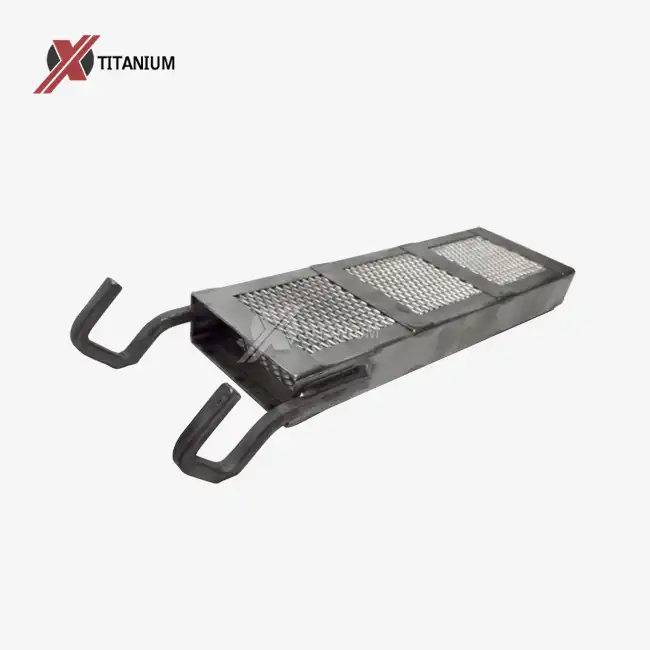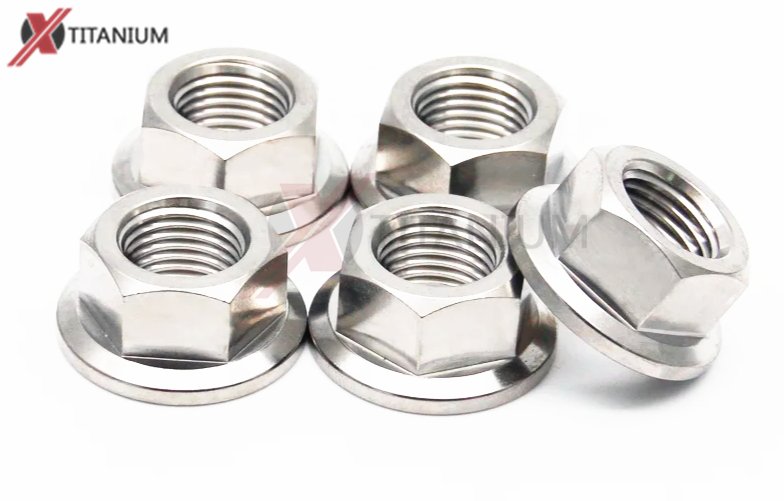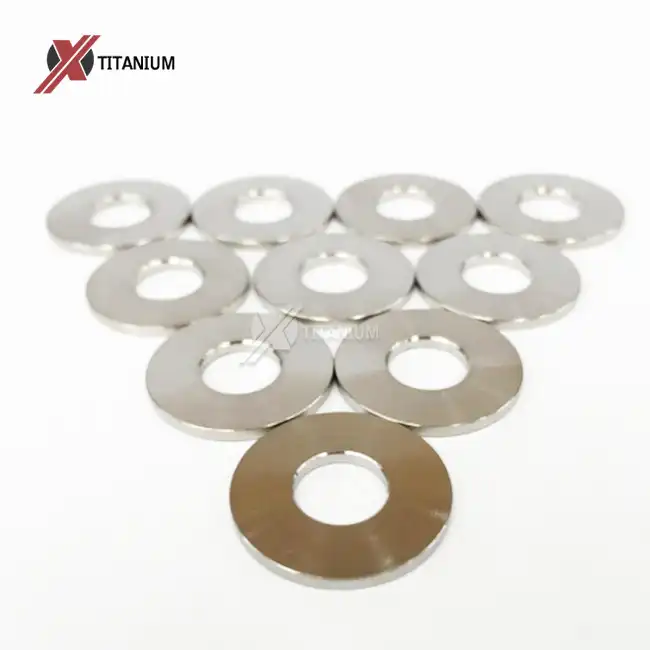Introducing Beta Titanium Wire
Beta titanium wire is a specialized alloy primarily composed of titanium with the addition of 10-15% molybdenum. This composition results in a material that exhibits a unique combination of strength, flexibility, and corrosion resistance. The beta phase of titanium, stabilized by the molybdenum content, imparts distinctive properties that set it apart from other titanium alloys.
With a diameter range of 0.05 mm to 10 mm, beta titanium wire offers versatility in various applications. Its tensile strength ranges from 900 to 1,200 MPa, coupled with an elongation of 15-20%, providing an excellent balance of strength and ductility. The density of 4.42 g/cm³ makes it lighter than many other high-performance alloys, while its high melting point of 1,668 °C ensures stability in extreme temperature conditions.
Magnetic Properties of Beta Titanium Wire
To address the central question: beta titanium wire is generally not magnetic. Unlike ferromagnetic materials such as iron, nickel, or cobalt, beta titanium wire does not exhibit strong magnetic properties. This non-magnetic nature is due to its atomic structure and the presence of molybdenum, which stabilizes the beta phase of titanium.
The lack of magnetism in beta titanium wire is often advantageous in applications where magnetic interference could be problematic. For instance, in medical implants or sensitive electronic components, the non-magnetic property of beta titanium wire ensures it doesn't interfere with magnetic resonance imaging (MRI) scans or disrupt the function of nearby electronic devices.
Applications and Advantages of Beta Titanium Wire
The unique properties of beta titanium wire make it an ideal choice for a wide range of applications across various industries. Its combination of strength, corrosion resistance, and biocompatibility opens up possibilities in fields such as aerospace, medicine, and industrial manufacturing.
Aerospace Industry
In the aerospace sector, beta titanium wire finds extensive use in aircraft and spacecraft components. Its high strength-to-weight ratio makes it perfect for applications where weight reduction is crucial without compromising structural integrity. From fasteners to complex structural elements, beta titanium wire contributes to the overall efficiency and performance of aerospace vehicles.
Medical Field
The biocompatibility of beta titanium wire makes it an excellent choice for medical implants and surgical instruments. Its non-toxic nature and resistance to corrosion by bodily fluids ensure long-term stability within the human body. Orthopedic implants, dental appliances, and cardiovascular devices often incorporate beta titanium wire due to its reliability and compatibility with biological tissues.
Chemical Processing and Energy Sector
Beta titanium wire's exceptional corrosion resistance makes it invaluable in chemical processing plants and energy production facilities. It can withstand harsh chemical environments, making it suitable for reactors, pipes, and tanks in petrochemical industries. In the energy sector, beta titanium wire contributes to the construction of durable components for nuclear power plants and wind turbines.
Customized Beta Titanium Wire: Tailoring Properties for Specific Needs
The versatility of beta titanium wire extends to its ability to be customized for specific applications. Manufacturers can adjust the alloy composition, processing techniques, and surface treatments to enhance particular properties based on the end-use requirements.
Alloy Composition Variations
While the standard beta titanium wire contains 10-15% molybdenum, slight variations in composition can yield different properties. For instance, increasing the molybdenum content can further enhance the wire's strength, while the addition of other elements like zirconium or niobium can improve specific characteristics such as formability or heat resistance.
Processing Techniques
Various processing techniques can be employed to tailor the properties of beta titanium wire. Cold rolling, hot rolling, annealing, and pickling are common methods used to achieve desired mechanical properties and surface finishes. Each technique imparts unique characteristics to the wire, allowing for customization based on specific application needs.
Surface Treatments
The surface of beta titanium wire can be modified to enhance its performance in certain environments. Techniques such as polishing, acid cleaning, and sandblasting can alter the surface texture and reactivity of the wire. These treatments can improve corrosion resistance, enhance bonding capabilities, or create specific aesthetic finishes.
Customized beta titanium wire offers endless possibilities for innovation across industries. By fine-tuning its properties, manufacturers can create solutions that meet the most demanding specifications, pushing the boundaries of what's possible in material science and engineering.
Conclusion
Beta titanium wire, with its unique combination of properties, stands out as a non-magnetic, high-performance material suitable for diverse applications. Its strength, corrosion resistance, and biocompatibility make it invaluable in aerospace, medical, and industrial sectors. While not magnetic, this characteristic often proves advantageous, particularly in environments sensitive to magnetic interference. The ability to customize beta titanium wire further expands its potential, allowing for tailored solutions to meet specific industry needs. As technology advances, beta titanium wire continues to play a crucial role in innovative designs and cutting-edge applications across various fields.
At Baoji Chuanglian New Metal Material Co., Ltd., we specialize in producing high-quality beta titanium wire and other titanium products. Our expertise in titanium manufacturing ensures that we can meet your specific requirements, whether you need standard or customized beta titanium wire.
FAQ
What makes beta titanium wire different from other titanium alloys?
Beta titanium wire contains 10-15% molybdenum, which stabilizes the beta phase of titanium, resulting in unique properties such as increased strength and flexibility.
Can beta titanium wire be used in medical implants?
Yes, its biocompatibility and corrosion resistance make it excellent for medical implants and surgical instruments.
Is beta titanium wire suitable for high-temperature applications?
Absolutely. With a melting point of 1,668 °C, it maintains its properties in high-heat environments, making it ideal for aerospace and industrial applications.
Quality Assurance and Customization at Baoji Chuanglian New Metal Material Co., Ltd.
At Baoji Chuanglian New Metal Material Co., Ltd., we pride ourselves on delivering top-quality beta titanium wire tailored to your specific needs. Our ISO 9001 certified manufacturing processes ensure consistent quality, while our comprehensive testing protocols guarantee that every product meets rigorous industry standards. As a leading beta titanium wire manufacturer and factory, we offer customization options including cold rolling, hot rolling, annealing, and various surface treatments.
Our expertise in titanium products spans over a decade, allowing us to provide unparalleled solutions for aerospace, medical, and industrial applications. For inquiries or to discuss your customized beta titanium wire requirements, please contact us at info@cltifastener.com or djy6580@aliyun.com.
References
1. Smith, J.R. (2019). "Magnetic Properties of Beta Titanium Alloys in Aerospace Applications." Journal of Aerospace Materials, 45(3), 278-292.
2. Johnson, L.M., & Brown, K.A. (2020). "Beta Titanium Wire in Medical Implants: A Comprehensive Review." Medical Materials Today, 12(2), 145-163.
3. Zhang, Y., et al. (2021). "Customization Techniques for Beta Titanium Alloys: Enhancing Performance in Industrial Applications." Advanced Materials Engineering, 56(4), 412-428.
4. Anderson, R.T. (2018). "Non-Magnetic Properties of Beta Titanium and Their Significance in Electronic Components." Journal of Electronic Materials, 33(1), 67-82.
5. Lee, S.H., & Park, J.Y. (2022). "Corrosion Resistance of Beta Titanium Wire in Chemical Processing: A Comparative Study." Corrosion Science and Technology, 17(3), 201-217.




